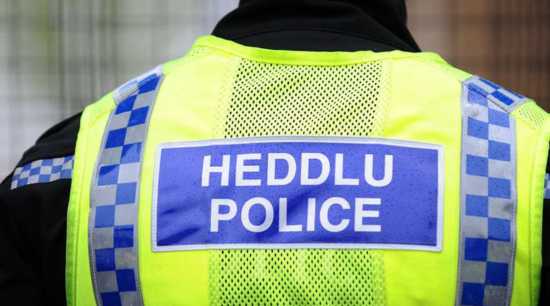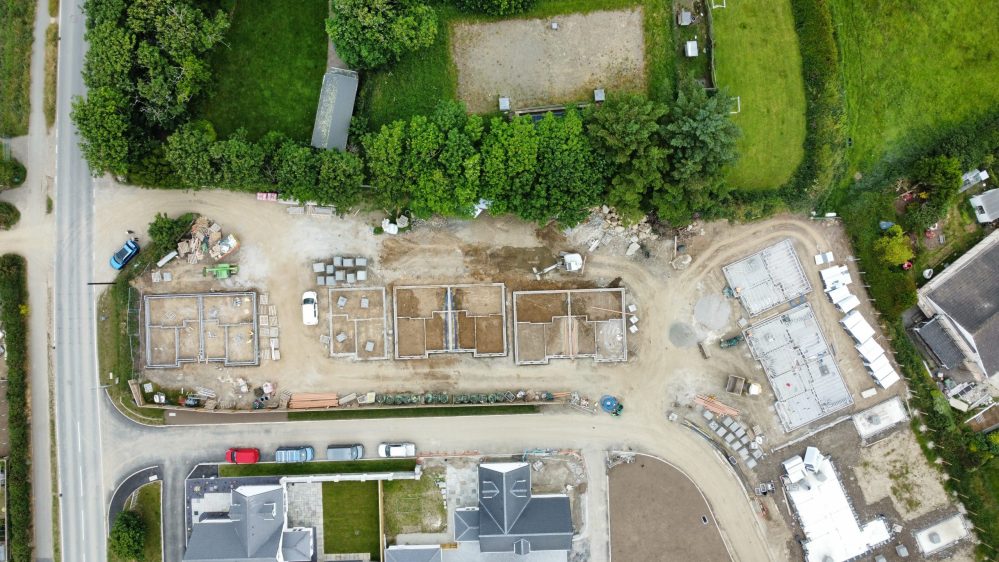News
Experimental forms and structures in modern essay writing

IN THE REALM of modern essay writing, a growing number of writers have been exploring experimental forms and structures to push the boundaries of conventional storytelling. These experimental essays, characterized by their unique and innovative approaches, offer readers a fresh perspective on traditional topics and challenge the way we perceive and interact with written narratives. Within these essays, authors employ various types of tones in writing to evoke different emotional responses and convey nuanced messages.
Understanding Experimental Forms in Essay Writing
Experimental forms in essay writing have evolved over time, breaking away from the rigid structures traditionally associated with the genre. Rather than conforming to a linear narrative format, experimental essays embrace unconventional techniques to deliver their message.
One of the key characteristics of experimental essays is their ability to surprise and engage readers. By subverting reader expectations and defying conventional storytelling norms, these essays encourage readers to explore new ways of thinking and experiencing narratives.
Creativity plays a crucial role in experimental writing. Writers are encouraged to think outside the box and explore uncharted territories to create unique and compelling essays. This emphasis on creativity allows writers to experiment with various narrative techniques, ultimately resulting in essays that push the boundaries of traditional storytelling.
When it comes to experimental forms in essay writing, there is no limit to the possibilities. Writers have the freedom to explore and employ a wide range of techniques to convey their ideas. For example, they may incorporate visual elements such as images, diagrams, or even interactive elements to enhance the reader’s understanding and engagement with the essay.
Furthermore, experimental essays often blur the line between fact and fiction, challenging the reader’s perception of reality. Through the use of imaginative storytelling, writers can create a unique blend of personal experiences, historical events, and fictional elements, offering readers a thought-provoking and immersive reading experience.
Additionally, experimental essays can also incorporate unconventional structures and formats. Writers may choose to abandon the traditional introduction-body-conclusion format and instead opt for fragmented narratives, nonlinear storytelling, or even choose to present the essay as a series of interconnected vignettes. This allows for a more dynamic and engaging reading experience, as readers navigate through different perspectives and ideas.
Ultimately, experimental forms in essay writing provide a platform for writers to challenge the status quo and explore new possibilities. By embracing unconventional techniques, writers can break free from the constraints of traditional storytelling and create essays that are not only intellectually stimulating but also emotionally resonant. So, the next time you come across an experimental essay, be prepared to embark on a journey that will expand your horizons and redefine your understanding of the genre.
The Impact of Structure in Modern Essays
The shift from traditional to modern structures has had a profound influence on the way readers perceive and engage with essays. As writers increasingly explore innovative structures, readers are exposed to new ways of comprehending and interpreting written texts.
Modern structures in essays focus on breaking away from linear narratives. By employing non-linear storytelling techniques, writers can challenge the notion of a single chronological order and instead create narratives that are fragmented or out of sequence. This fragmentation can enhance the overall impact of an essay by allowing readers to piece together information in their own unique way.
However, striking a balance between coherence and innovation is crucial. While challenging traditional structures can be captivating, it is important for writers to maintain a level of coherence that allows readers to follow the essay’s central themes and ideas. By doing so, writers can ensure that their experimental structures enhance the reader’s experience rather than detract from it.
One example of a modern essay structure that has gained popularity in recent years is the braided essay. This structure weaves together multiple narratives or themes, creating a rich tapestry of ideas. The braided essay allows writers to explore different perspectives or experiences, highlighting the interconnectedness of seemingly unrelated topics. This structure can be particularly effective when discussing complex or multifaceted subjects, as it provides a framework for exploring various angles and dimensions.
Another innovative structure that has emerged in modern essays is the use of visual elements. Incorporating images, charts, or graphs into an essay can add a layer of depth and engagement for the reader. Visual elements can serve as visual metaphors, reinforcing the essay’s themes or providing additional context. They can also break up the text, offering moments of respite and visual stimulation. However, it is important for writers to use visual elements judiciously, ensuring that they enhance the overall narrative rather than distract or overwhelm the reader.
Techniques for Writing Experimental Essays
Embracing non-linear narratives is one technique commonly employed in experimental essay writing. By weaving together various threads and narratives that may not follow a linear timeline, writers can create a more complex and multi-dimensional reading experience. This non-linear approach can provoke thought and encourage readers to actively engage with the text.
Another technique for writing experimental essays involves incorporating visual elements. By using images, illustrations, or multimedia elements, writers can enhance the essay’s impact and create a more immersive experience for the reader. Visual elements can convey emotions, concepts, or ideas that text alone may struggle to capture.
The use of fragmentation and disjunction is also prevalent in experimental writing. By deliberately interrupting the flow of the essay, writers can create a sense of disorientation or surprise, capturing the reader’s attention and challenging their preconceived notions. This technique can be particularly effective when exploring themes of identity, memory, or perception.
The Challenges and Rewards of Experimental Writing
While writing experimental essays can be liberating and exciting, it is not without its challenges. One of the primary hurdles writers face is the fear of breaking norms and venturing into uncharted territory. Traditional essay writing has long been governed by established rules and structures, making it difficult for writers to deviate from the familiar. However, by embracing experimentation, writers can release themselves from these constraints and discover new forms of expression.
Despite the challenges, the rewards of experimental writing are plentiful. Creating unique narratives that defy expectations can be deeply satisfying for both the writer and the reader. Experimental essays have the potential to captivate and engage readers on a deeper level, inviting them to question their assumptions and experience the world in fresh and unexpected ways. This unique connection between writer and reader is an essential aspect of experimental writing that fosters exploration and sparks intellectual growth.
To Sum Up
Overall, experimental forms and structures in modern essay writing offer a refreshing departure from traditional conventions. By embracing creativity, exploring innovative structures, and challenging reader expectations, writers can create essays that captivate, engage, and leave a lasting impact on their audience.
Community
Public reminded to stay away from Ward’s Yard and Criterion Quay

THE PORT of Milford Haven is reminding members of the public to stay away from Ward’s Yard in Milford Haven and Criterion Quay (sometimes known as the offshore jetty) in Pembroke Dock due to concerns over public safety.
Despite significant security measures, people continue to access the sites illegally, ignoring and sometimes damaging the onsite signage and fences.
Niall Yeomans, Head of Health, Safety and Security at the Port of Milford Haven said: “Safety is our key priority. Members of the public are continuously putting themselves and members of our team at risk of serious harm by trespassing in these areas.”
“Both Ward’s Yard and Criterion Quay are unsafe for public access. They are isolated areas next to deep water and are susceptible to slips, trips and falls.”
Both sites are owned by the Port of Milford Haven and are private property. Anyone found onsite without consent is trespassing, and any criminal damage could result in prosecution.
Anyone who sees any suspicious activity at Ward’s Yard or Criterion Quay is asked to contact Dyfed Powys Police on 101 urgently.
Crime
‘Sophisticated’ organised crime gang trafficked cocaine and cannabis to Aberystwyth

FIVE people have been found guilty or admitted to conspiring to supply cocaine and cannabis as Dyfed-Powys Police continues its efforts to dismantle organised crime gangs.
Officers seized cocaine with a street value of more than £400,000 from gang members, who continually changed tactics to avoid arrest.
Six defendants have appeared in court in the latest phase of Dyfed-Powys Police’s Operation Burleigh, which sought to disrupt the trafficking and onward supply of class A and B drugs into Aberystwyth, with all but one admitting their charges or being found guilty by a jury.
This brings the total number of people awaiting sentence under the operation to 15.
The court heard that officers from Dyfed-Powys Police’s Serious and Organised Crime Team and Ceredigion Priority Policing Team led the investigation into the OCG, which was described as ‘sophisticated, well-organised and evolving’.
Detective Sergeant Steven Jones said: “This conspiracy operated on a County Lines model, where controlled drugs are trafficked into a smaller rural town from a larger city, and the operation is controlled by one or more ‘drugs lines’.
“In this case there were a total of four lines controlling the supply of cocaine and cannabis within Aberystwyth.
“The conspirators frequently evolved their actions to frustrate the authorities and evade capture.”
The OCG embedded members were mainly asylum seekers brought to Aberystwyth by Toana Ahmad and another man who remains outstanding, with the sole purpose of dealing drugs. The drug lines were initially based in Swansea, and later in areas of Birmingham.
Three properties – on Terrace Road, Alexander Road and Parc Graig Glas – were identified early in the investigation as being used to house the OCG members embedded in Aberystwyth. Substantial amounts of cash, controlled drugs and weapons were recovered from these properties, and from the people found inside.
When arrests were made, the gang changed its tactics. Drugs began to be supplied from vehicles, and OCG members stayed in guest houses to avoid detection.
DS Jones added: “Trusted couriers were employed to transport drugs to Aberystwyth and cash back to Birmingham or Swansea. A number of vehicles, including taxis, were used as the gang attempted to avoid detection along the route, while trains were also taken when courier cars were stopped by officers.”
In June 2023, two vehicles travelling from the West Midlands towards Aberystwyth were stopped by police on consecutive days. A black sock was uncovered in the engine of the first car, which was found to contain 82g of high purity cocaine divided into 169 grip seal plastic bags.
Davinder Singh, who previously pleaded guilty to conspiracy to supply class A and class B drugs, was the driver of the second vehicle, which was a taxi. A blue plastic bag was seen falling out of his shorts, which contained over 81g of high purity cocaine divided into 167 grip seal bags.
DS Jones said: “On the basis that the amounts of cocaine transported over the 37 couriers over the course of the conspiracy period were similar, over 3kg of cocaine would have been conveyed to Aberystwyth from Birmingham.
“This equates to class A drugs with a potential street value of over £308,950. In addition to this, class A drugs were seized from individuals and addresses with a potential street value of £103,445, along with cash totalling £11,687.
“A number of teams and departments across Dyfed-Powys Police, from analysts, CCTV operators and priority policing teams, to CAB, the Technical Support Unit, Economic Crime Team and Force Intelligence Bureau all assisted in dismantling the OCG from top to bottom.
“Their dedication and relentless efforts have assisted in making Aberystwyth a safer place to live without the threat and harm of drugs being made easily available on the street.”
After a seven-week trial at Swansea Crown Court earlier this year, the following three defendants were found guilty for their parts in the conspiracy:
- Toana Ahmad, aged 33, of Lee Gardens in Smethwich, West Midlands
- Barzan Sarhan, aged 31, of no fixed address
- Ahmed Piro, aged 26, of no fixed address
The jury failed to reach a verdict on two defendants during the earlier trial. They have been subject to a retrial starting on July 1, with the following outcomes:
- Hawre Ahmed, aged 35, of Pinderfields Road, Wakefield, West Yorkshire, was found guilty by the jury of conspiracy to supply Class A and B controlled drugs.
- Diar Yousef Zeabari, aged 35, of Flat 5, 41 Bryn Road, Swansea, was found not guilty of conspiracy to supply Class A and B controlled drugs.
Karwan Karim, aged 39 of 125 Griffith John Street, Swansea, also stood trial, and pleaded guilty to conspiracy to supply Class A and B controlled drugs on day three.
In addition to the OCG members found guilty during the most recent trials, the following have previously pleaded guilty to charges of conspiracy to supply class A and class B drugs under Operation Burleigh:
- Davinder Singh, aged 36, of Huntingdon Road, West Bromwich
- Daban Khalil, aged 23, of Streetly Road, Birmingham
- Kastro Omar, aged 30, of Junction Road, Northampton
- Karwan Jabari, aged 26, of Weedon Close, Northampton
- Walid Younis Abdal, aged 34, of St Anne’s Road, Doncaster
- Saman Aziz, aged 41, of Kirk Road, Merseyside
- Adel Mustafa, aged 39, of Hubert Road, Newport
- Charlotte Roberts, aged 21, of Sutton Hill, Telford
The following have previously pleaded guilty to conspiracy to supply class A drugs:
- Akasha Smith, aged 24, of Third Avenue, Aberystwyth
- Luqman Jarjis, aged 21, of Wake Green Road, Birmingham
News
Community asked for views on allocation of new St Davids homes

THE FIRST phase of Pembrokeshire County Council’s Glasfryn housing development in St Davids is progressing well with the second phase also underway.
The development being built by GRD Homes Ltd, began in November 2023, with a first phase completion date of Winter 2024 looking hopeful, ahead of the scheduled plans.
The first phase consists of seven properties, including a mixture of one and two bedroom bungalows
As completion draws closer the properties will be advertised via Pembrokeshire Choice Homes.
Ahead of this, the Council’s housing team will be holding community engagement on the 13th August 2024 at the Ty’r Pererin Centres, Quickwell Hill, St Davids, SA62 6PD, 5pm-7pm.
This will be a chance for officers to liaise with the local community about the allocation process for these properties.
Glasfryn’s second phase is well underway, with the initial groundwork already completed. This phase includes a further 11 two bedroom bungalows, with a completion date in late 2025.
These bungalows will meet the latest Welsh Government’s Development Quality Requirement, and will be energy efficient, built to EPC A specification and include solar panels to help tenants with running costs.
The Glasfryn development is funded in partnership with Welsh Government.
Cabinet Member for Housing Cllr Michelle Bateman said: “We are really keen to work with the community on a local lettings policy for these new properties, as we have done for our developments in other parts of the County.”
If you have any queries please email the Customer Liaison Team on [email protected], phone them on 01437 764551, or visit Housing’s Facebook page.
-

 Education5 days ago
Education5 days agoMilford Tesco worker achieves Oxford dream and lands top legal job
-

 Crime4 days ago
Crime4 days agoHaverfordwest man admits having nearly 1000 child and animal images
-

 Crime4 days ago
Crime4 days agoYouth set to appear in court over serious sexual offences
-

 Crime4 days ago
Crime4 days agoPolice investigating after man injured during altercation in cemetery
-

 Education4 days ago
Education4 days agoPupils delight in ice cream treat from Pembrokeshire’s number one van
-

 Crime4 days ago
Crime4 days agoTown centre ‘stinking of skunk’ as police strip cannabis farm
-

 Crime3 days ago
Crime3 days agoFag-butt police court summonses spark debate in Pembrokeshire
-

 News6 days ago
News6 days agoProposal to give firefighters a council tax discount to go to Cabinet






























